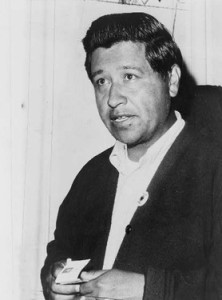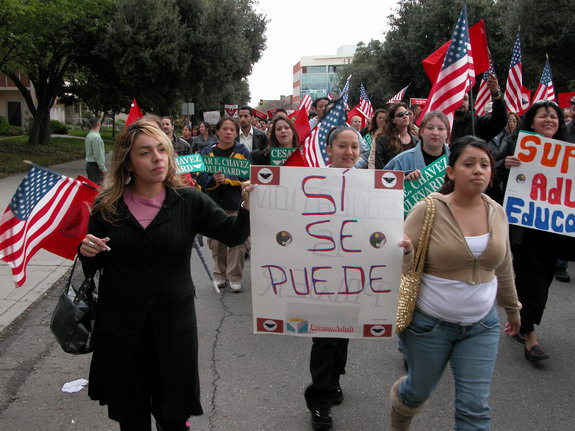 March 31st is Cesar Chavez Day, a commemoration of the life of labor activist and civil rights pioneer Cesar Chavez. Chavez cofounded the National Farm Workers Association with Dolores Huerta and worked tirelessly throughout his life to encourage Mexican Americans and other Latin@s to vote, to protect the rights of workers, and to protest the use of pesticides on our food supply. Many people commemorate Cesar Chavez day by giving back to their communities through volunteer work and service.
March 31st is Cesar Chavez Day, a commemoration of the life of labor activist and civil rights pioneer Cesar Chavez. Chavez cofounded the National Farm Workers Association with Dolores Huerta and worked tirelessly throughout his life to encourage Mexican Americans and other Latin@s to vote, to protect the rights of workers, and to protest the use of pesticides on our food supply. Many people commemorate Cesar Chavez day by giving back to their communities through volunteer work and service.
The impact of immigration reform on the labor conditions and practices that Cesar Chavez spent his life protesting cannot be overstated. According to the AFL-CIO labor union, immigrant workers face the highest rates of wage theft, sexual harassment, and death and injury on the job. Employers can use the threat of deportation as a weapon to keep workers from asserting their rights or enforcing labor standards. And when family members are deported, the impact can be devastating on the remaining family members, who lose income, caregivers, and the closeness of their loved ones.
Since our inception in 2010, the Diverse Elders Coalition has advocated for immigration reform that supports elders and families. Our story archive is full of stories from elders who suffered from the impact of deportation, like that of Claudette, an LGBTQ mother and grandmother who escaped violence in Jamaica only to be detained by ICE. Older immigrants and diverse elders are more vulnerable, isolated and face greater barriers to accessing services than the general older adult population. As such, immigration reform presents a key opportunity to strengthen our programs and policies to better support older immigrants.

As we remember the life of Cesar Chavez, it is important also to look ahead to immigration reform policies that impact diverse elders now and in the years to come. We use the stories of our community members to advocate for older Americans, including in the fight for immigration reform. Do you have an immigration story to tell? Submit it here.
The opinions expressed in this article are those of the author and do not necessarily reflect those of the Diverse Elders Coalition.

